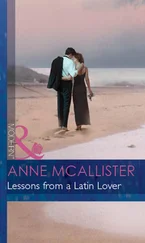James Watson - AVOID BORING PEOPLE - Lessons from a Life in Science
Здесь есть возможность читать онлайн «James Watson - AVOID BORING PEOPLE - Lessons from a Life in Science» весь текст электронной книги совершенно бесплатно (целиком полную версию без сокращений). В некоторых случаях можно слушать аудио, скачать через торрент в формате fb2 и присутствует краткое содержание. Жанр: Биографии и Мемуары. Описание произведения, (предисловие) а так же отзывы посетителей доступны на портале библиотеки ЛибКат.
- Название:AVOID BORING PEOPLE: Lessons from a Life in Science
- Автор:
- Жанр:
- Год:неизвестен
- ISBN:нет данных
- Рейтинг книги:5 / 5. Голосов: 1
-
Избранное:Добавить в избранное
- Отзывы:
-
Ваша оценка:
- 100
- 1
- 2
- 3
- 4
- 5
AVOID BORING PEOPLE: Lessons from a Life in Science: краткое содержание, описание и аннотация
Предлагаем к чтению аннотацию, описание, краткое содержание или предисловие (зависит от того, что написал сам автор книги «AVOID BORING PEOPLE: Lessons from a Life in Science»). Если вы не нашли необходимую информацию о книге — напишите в комментариях, мы постараемся отыскать её.
AVOID BORING PEOPLE: Lessons from a Life in Science — читать онлайн бесплатно полную книгу (весь текст) целиком
Ниже представлен текст книги, разбитый по страницам. Система сохранения места последней прочитанной страницы, позволяет с удобством читать онлайн бесплатно книгу «AVOID BORING PEOPLE: Lessons from a Life in Science», без необходимости каждый раз заново искать на чём Вы остановились. Поставьте закладку, и сможете в любой момент перейти на страницу, на которой закончили чтение.
Интервал:
Закладка:
Excited by his forceful rhetoric but uneasy about its sentiments, my parents and my sister, who had just completed her first year at the college, walked across Woodlawn Avenue to the reception at Ida Noyes Hall. There Hutchins recognized Dad as we passed through the receiving line, and briefly chatted with him about their student days at
Oberlin. Afterward Dad recounted how Bob had then been a rebel and had been part of a group that secretly smoked cigarettes.
My advanced ornithology class at the University of Michigan Biological Station, summer 0/1946. I am in the back row, second from the left.
At the start of summer I was on the train to Pellston, just below the Straits of Mackinac. Nearby on Douglas Lake was the University of Michigan Biological Station. Upon my arrival I registered for two courses, Systematic Botany and Advanced Ornithology, moved into a tented cabin, and soon found myself socializing mainly with those, like me, who were serving meals in the dining hall to make our limited means go farther. Now more than six feet tall, I no longer looked a physical misfit. For the first time I began to befriend peers who were not obvious oddballs, elected because no one else seemed keen to eat with me. Soon I was being called “Jimbo,” a southernism quickly adopted by several young waitresses who were inspired by my youth to treat me as a kid brother.
Upon my return to fall classes, my seemingly improved social skills encouraged a close friend and his girlfriend to set me up on my first
real college date. Dominating the college social scene during my junior and senior years were two girls who were almost always seen together: Rosemary Raymond and Irene (Reno) Lyons. Rosy was the more smashing, often spotted driving about in her parents’ new, Raymond Loewy-designed, ultramodern Studebaker. But Reno was also clearly fun, and I did not believe she would go out with me. She agreed, however, and we went to a Saturday night party in a campus dorm, from which we went on to have a snack at the Tropical Hut on Fifty-seventh Street, where my awkwardness abated only somewhat.
“Jimbo” Watson, eighteen years old and at ease
That was not only my first college date but also my last. The pursuit of happiness thereafter was mainly taken up with improving my tennis skills on the courts under Stagg Field with Howard Holtzer, my
only real competition in zoology. Though he was five years older than me, I could occasionally beat him with cross-court forehand shots. At that time I was just filling out several applications for graduate school, with Caltech as my first choice. Not only was its Biology Department heavily into genetics, but its world-famous chemist, Linus Pauling, was also interested in biology at the molecular level. I also applied to the Biology Department at Harvard for no good reason except that Harvard was Harvard. Indiana University was a sleeper that I applied to on the advice of my undergraduate advisor. I was told they had several outstanding younger geneticists, though their names then meant nothing to me. I did know, however, that the great geneticist Hermann J. Muller had just arrived there. He became a celebrity that October when it was announced he had won the 1946 Nobel Prize for his discovery in 1926 that X-rays cause mutations.As early April approached, I began to worry about the fate of my applications. And so it was a considerable relief when I did receive an acceptance letter from Fernandus Payne, the dean of Indiana University's graduate school. In addition to a $900 annual stipend, all tuition fees were waived. I was warned, however, that if I expected my main interest to continue to be birds, I should choose a different place. So my future was already secure when I received Caltech's rejection letter, which hurt but didn't surprise me. They had no way of knowing that I had become more interested in studying genetics than birds. They also expected their students to do well in math. Last to arrive was a letter from Harvard offering acceptance but no financial aid for tuition or living costs. I was in no sense disappointed, as there was no one on its faculty truly interested in the gene.
During my last quarter, I registered for the simpler of the two departmental organic chemistry courses, the one for pre-meds as opposed to future scientists. The course material was not much of a challenge, and the professor gave us the option of counting only the top three out of four required exams toward our final grade. After getting As on the first three tests, it seemed perfectly reasonable to skip the final two and a half weeks of lectures. In this way, I graduated from Chicago never having studied ring-shaped, aromatic carbon compounds. My grades for my two other spring courses, which included
Vertebrate Embryology and a statistics-oriented psychology course, were also Äs, as in fact were all my grades the final year. I ascribed my success in the final laps primarily to lack of competition, since better science students tended toward the more rigorous programs of physics and chemistry.
Indiana University made its position perfectly clear.
Just before the June 1947 commencement, at which I would receive a B.S. degree, I learned that I had been elected to Phi Beta Kappa. I had long coveted the honor but never thought I could pull off enough Äs in science to pull up the rest of my only-slightly-above-average grades. Most thrilled were my parents, who had devoted so much of their meager salaries to my schooling. Never once did they even hint that I was shirking my responsibilities in preferring books and birds over making money.
Over my last summer at home, I spent more and more time at Wolf Lake observing shorebirds. There I found hundreds of black-bellied plovers as well as dozens of the golden plovers, whose long migration over oceans had so thrilled me when I read about them as a child. Piping plovers still nested on the sandy shores and intermingled with the many more semipalmate plovers that arrived soon after the fall migration started in early August. I would watch the shorebird flocks scurrying along the beach, trying to think through the evolutionary pressures that had created such social animals, which invariably flocked together instead of going their solitary ways. Whether any general principles governing the social behavior of birds even existed, no one then knew. Deep down I was relieved that Indiana's warning would not allow me to stake my future on the pursuit of an objective that might prove a phantom. In contrast, what needed to be found out about genes was relatively clear. They obviously existed, but how did they work? Knowing by graduation where I wanted to go intellectually was the real achievement of my college years.Remembered Lessons
1. College is for learning how to think
Whether on a scholarship or paying full fare, college costs too much time and money if you don't use it to learn how to think. In Joseph Schwab's Humanities I class, knowing what Socrates was reputed to have said mattered much less than confronting whether the reasoning he used to reach his conclusions was watertight. Day after day we were pushed into classroom fights where we boxed with our brains instead of our fists. Syllogisms, in which two premises predicate unassailable conclusions, dominated our classroom hours, with the exact meaning of words being of paramount importance. Failure to spot faulty premises all too easily led to classroom answers that ran against common sense. Back in high school, I was challenged by a friend who had what he thought was incontrovertible proof of the existence of God.
Читать дальшеИнтервал:
Закладка:
Похожие книги на «AVOID BORING PEOPLE: Lessons from a Life in Science»
Представляем Вашему вниманию похожие книги на «AVOID BORING PEOPLE: Lessons from a Life in Science» списком для выбора. Мы отобрали схожую по названию и смыслу литературу в надежде предоставить читателям больше вариантов отыскать новые, интересные, ещё непрочитанные произведения.
Обсуждение, отзывы о книге «AVOID BORING PEOPLE: Lessons from a Life in Science» и просто собственные мнения читателей. Оставьте ваши комментарии, напишите, что Вы думаете о произведении, его смысле или главных героях. Укажите что конкретно понравилось, а что нет, и почему Вы так считаете.












